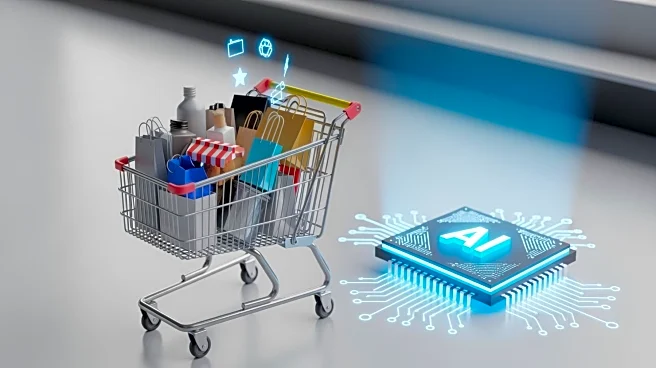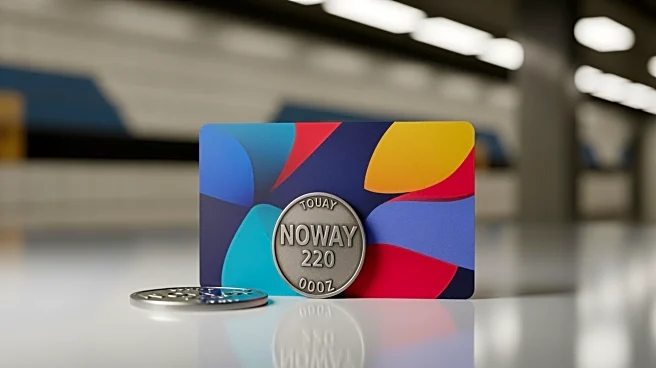What's Happening?
OpenAI is exploring new revenue streams by positioning ChatGPT as a shopping assistant. The chatbot is designed to help users make purchasing decisions by comparing products, sorting prices, and answering detailed questions. Despite these capabilities,
a study by German academics Maximilian Kaiser and Christian Schulze reveals that ChatGPT's effectiveness in driving e-commerce sales is currently limited. Shoppers arriving at e-commerce sites via ChatGPT are less likely to make purchases compared to those arriving through traditional channels like search results or direct visits. The study highlights that traffic from ChatGPT is significantly smaller than from Google searches, indicating that e-commerce sites have not yet adapted to cater to chatbot-driven traffic. However, OpenAI is making strides by partnering with major retailers like Etsy, Shopify, and Walmart to enhance ChatGPT's purchasing capabilities, including the introduction of Instant Checkout for seamless transactions.
Why It's Important?
The development of ChatGPT as a shopping assistant represents a significant shift in e-commerce dynamics. If successful, it could alter how consumers interact with online shopping platforms, potentially capturing a substantial portion of the projected $2.9 trillion U.S. e-commerce market by 2030. The study suggests that while ChatGPT currently trails traditional sales channels, its conversion rates and revenue per session are improving. This indicates a growing trust in AI recommendations, which could lead to increased consumer reliance on AI for shopping decisions. The partnerships with major retailers and the introduction of Instant Checkout could further streamline the shopping process, making AI-driven purchases more appealing. As consumers become more comfortable with AI technology, the value of traffic from ChatGPT is expected to rise, potentially challenging established e-commerce giants.
What's Next?
OpenAI's continued partnerships and technological advancements suggest a focus on improving ChatGPT's shopping capabilities. The introduction of Instant Checkout aims to simplify the purchasing process, allowing users to buy items directly through the chatbot. This development could lead to increased adoption of AI-driven shopping, prompting e-commerce sites to adapt their designs and processes to accommodate chatbot traffic. Competition from Amazon's AI bot, Rufus, indicates a growing interest in AI shopping assistants, which may drive further innovation in the sector. As AI technology evolves, consumers are likely to become more comfortable with AI recommendations, potentially leading to a shift in e-commerce strategies and consumer behavior.
Beyond the Headlines
The integration of AI into shopping experiences raises ethical and privacy concerns, particularly regarding data collection and user profiling. As AI systems become more adept at understanding consumer preferences, questions about data security and the potential for manipulation arise. Additionally, the shift towards AI-driven shopping could impact traditional retail models, necessitating adaptations in marketing strategies and customer engagement practices. The long-term implications of AI in e-commerce may include changes in consumer trust, the value of expertise, and the role of human interaction in shopping experiences.
















